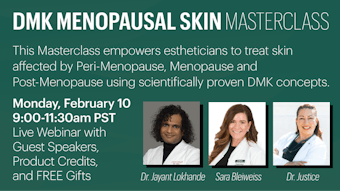
If new medical treatments could slow the aging process and allow people to live decades longer, to at least 120 years old, would you want to have the treatments? A new survey by the Pew Research Center finds that most Americans (56%) say "no"—they, personally, would not want treatments to enable dramatically longer lives. But roughly two-thirds (68%) think that most other people would choose to live to 120 and beyond.
The survey explores the public's attitudes toward aging, medical advances and what some biomedical researchers call "radical life extension"—the possibility that scientific breakthroughs someday could allow people to live much longer than is possible today. Overall, more Americans think dramatically longer life spans would be bad (51%) than good (41%) for society.
Asked how long they ideally would like to live, more than two-thirds of United States adults (69%) cite an age between 79 and 100. The median desired life span of survey respondents is 90 years—about 11 years longer than the current average United States life expectancy, which is 78.7 years. Just 9% of Americans say they want to live more than 100 years.
"On the one hand, most Americans would like to live beyond today's average life expectancy," says Cary Funk, the survey's principal researcher. "But on the other hand, and perhaps surprisingly, a majority of Americans say they would not choose to undergo medical treatments to slow the aging process and live decades longer—to 120 or more."
Because most Americans say they have heard little or nothing about the possibility of radically extended lifetimes, and because the scientific breakthroughs are far from certain, the wording of the survey questions focus on the result—much longer life spans—and are deliberately vague about how this would be achieved or how healthy an average person would be at 120 and beyond.
The survey also seeks to put the forward-looking questions about radical life extension into perspective by asking Americans about their views on aging, health care, medical advances in general, personal life satisfaction and bioethical issues.
The findings suggest that the United States public is not particularly concerned about the gradual rise in the percentage of Americans who are 65 and older. Nearly nine-in-ten adults surveyed say that "having more elderly people in the population" either is a good thing for society (41%) or doesn't make much difference (47%). Just 10% see the graying of America as a bad thing.
On balance, the public also tends to view medical advances in general as good (63%) rather than as interfering with the natural cycle of life (32%). And the public is optimistic that some extraordinary breakthroughs will occur in the next few decades. For example, about seven-in-ten Americans think that by the year 2050 there will be a cure for most forms of cancer (69%) and that artificial arms and legs will perform better than natural ones (71%).
But there is skepticism that radical life extension will be possible anytime soon. Only a quarter of United States adults think that by 2050 the average American will live to be 120 years old; nearly three-quarters (73%) say this either "probably" or "definitely" will not happen. And, if it does happen, many Americans foresee both positive and negative consequences for society.
More than four-in-ten adults (44%), for example, say that radical life extension would make the economy more productive because people could work longer, but 53% disagree. Two-thirds say they think that dramatically longer life spans "would strain our natural resources" and that medical scientists would offer life-extending treatments before they fully understood the health effects. And although a solid majority of Americans (79%) think that life-extending treatments should be available to everyone who wants them, most (66%) also think that, in practice, only the wealthy would have access to the new technology.
These are among the key findings of a new, nationwide survey by the Pew Research Center's Religion & Public Life Project. The survey was conducted March 21-April 8, 2013, on cell phones and landlines, among a nationally representative sample of 2,012 adults. The overall margin of error for the full sample is plus or minus 2.9 percentage points.
Following are other key findings.
- Most Americans have heard little or nothing about biomedical advances that may hold the potential to extend life by decades. Only 7% of respondents say they have heard or read a lot about the possibility that new medical treatments could, in the future, allow people to live much longer; 38% say they have heard a little about this possibility, and about half (54%) have heard nothing about radical life extension prior to taking the survey. Those who have heard at least a little about radical life extension are closely divided in their views: 46% say such treatments would be a good thing for society, and 47% say they would be a bad thing. Those who have heard nothing about it prior to the survey interview are more inclined to see radical life extension as a bad thing (56%) than a good thing (38%) for society.
- There are some differences among religious groups when it comes to attitudes about medical treatments that would slow the aging process and extend life by decades. Black Protestants are among the most likely to say radical life extension would be a good thing for society (54%). By contrast, fewer white evangelical Protestants (34%) and white Catholics (31%) say the same. Hispanic Catholics (44%) are more likely than white Catholics (31%) to think these treatments would be a good thing for society.
- The differences among religious groups are in keeping with the overall patterns by race and ethnicity. Regardless of religious affiliation, blacks (56%) and Hispanics (48%) are more likely than whites (36%) to see radical life extension as a good thing for society. They are also somewhat more inclined to say that they, personally, would want life-extending treatments. These findings are consistent with the survey's findings that blacks are especially likely to express a desire to live 100 years or more. And both blacks and Hispanics tend to be more optimistic than whites about the future outlook for their personal lives.
- The survey contains a number of null findings that may be surprising. Many standard measures of religious belief and practice, including belief in God and frequency of attendance at religious services, are related to views on radical life extension only weakly, if at all. There also is not a strong relationship in the survey between the gender, education level, political party identification or current health of respondents and what they say about longer human life spans.
There is, at present, no method of slowing the aging process and extending the average life expectancy to 120 years or more. But research aimed at unlocking the secrets of aging is underway at universities and corporate labs, and religious leaders, bioethicists and philosophers have begun to think about the morality of radical life extension. Together with the survey results, Pew Research is releasing two accompanying reports. "To Count Our Days: The Scientific and Ethical Dimensions of Radical Life Extension" presents an overview of the scientific research and the emerging ethical debate. "Religious Leaders' Views on Radical Life Extension" describes how some clergy, bioethicists, theologians and other scholars think their religious traditions might approach the issue.
The full report, background essay and views of religious leaders, along with an interactive, are available on the Religion & Public Life Project's website. Pew Research Center is a nonpartisan fact tank that informs the public about the issues, attitudes and trends shaping America and the world. It does not take policy positions. Its Religion & Public Life Project seeks to promote a deeper understanding of issues at the intersection of religion and public affairs.










